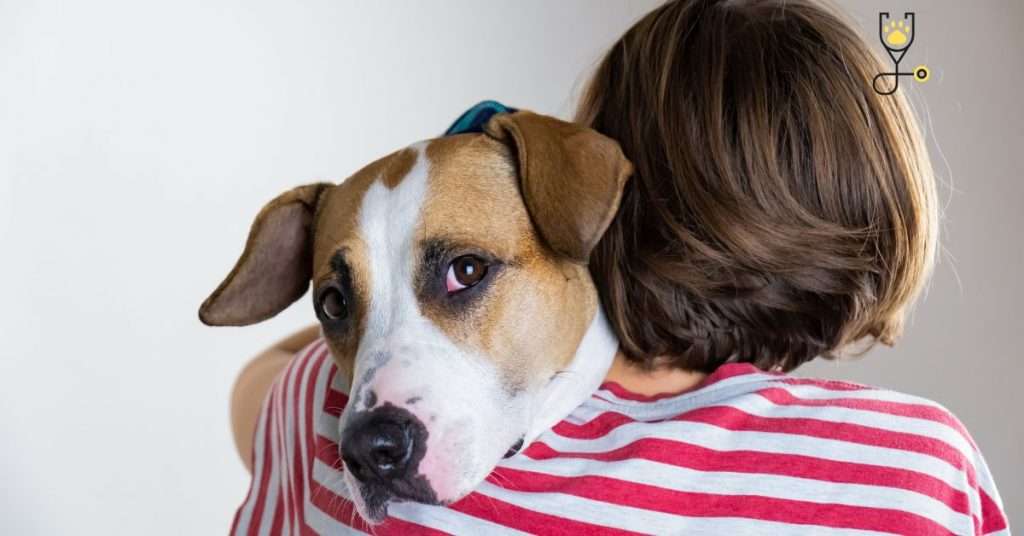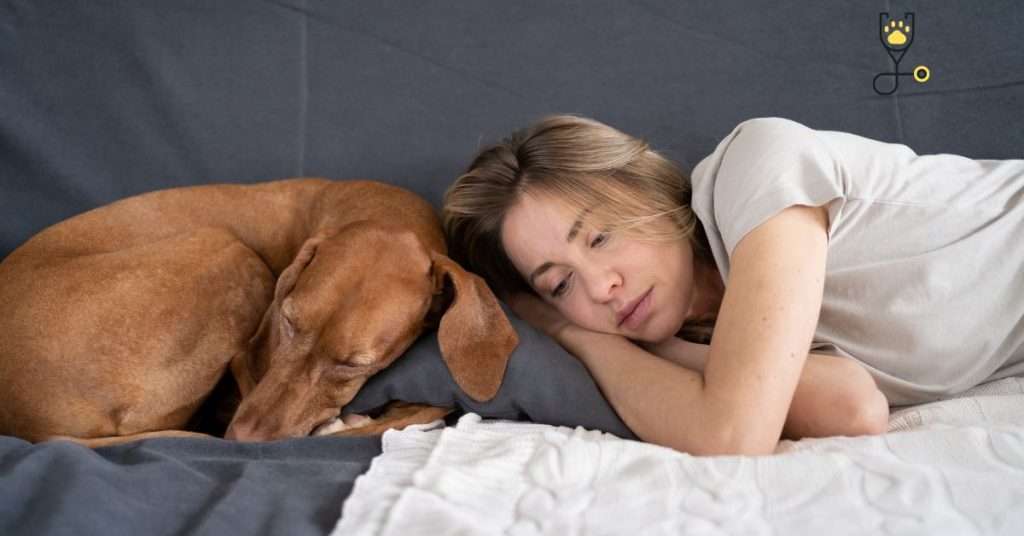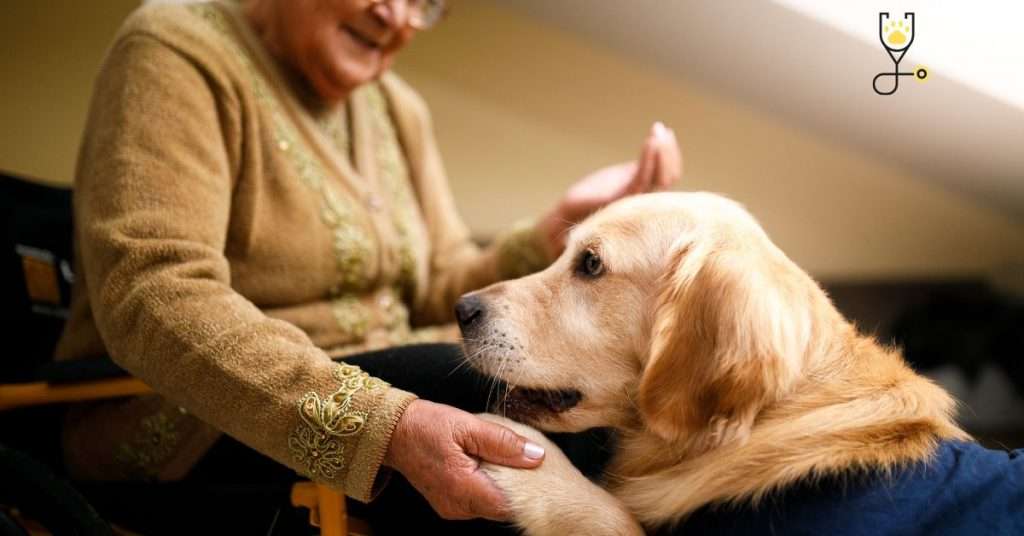All dog owners know that their furry friend brings a lot of joy into their lives. But what happens when your dog starts to experience anxiety or depression? It can be difficult to cope with, but there are ways you can help your dog overcome these issues. In this post, we’ll discuss the symptoms of anxiety and depression in dogs, as well as some tips for helping them get through it. Keep reading to learn more!
Learn More: Must-Have Products If Your Dog Won’t Stop Peeing on Your Carpet
Anxiety and depression?
Anxiety and depression are two of the most common mental health conditions. They can have a big impact on your dog’s life, making it hard to cope with everyday tasks. Anxiety is characterized by feelings of worry, stress, and unease, while depression is marked by persistent sadness, low mood, and loss of interest in activities.
Dogs can experience both anxiety and depression, and the two conditions often go hand-in-hand. Anxiety can lead to depression, and vice versa. It’s important to be aware of the signs of both conditions so you can get your dog the help they need.

Signs of anxiety in dogs
There are a number of signs that can indicate your dog is experiencing anxiety. They may exhibit some or all of these behaviors:
- Panting
- Shaking
- Trembling
- Excessive shedding
- Hiding
- Clinging
- Barking
- Whining
- pacing
- Destructive behavior
- Loss of appetite
These are just a few of the many ways anxiety can manifest in dogs. If you notice your dog exhibiting any of these behaviors, it’s important to take action.
Signs of depression in dogs
Depression is a little harder to spot in dogs since they can’t tell us how they’re feeling. However, there are some common signs to look out for:
- Lethargy
- Sleepiness
- Loss of appetite
- Weight loss
- Refusing to play
- Withdrawing from interaction
- Excessive licking or chewing
- Hiding
- Pacing
- Aggression
These are some of the more common signs, but it’s important to note that every dog is different. Some may exhibit all of these behaviors, while others may only show a few.
Read More: The Best Drinking Bowls for German Shepherds
Steps to overcome anxiety and depression in dogs

1. Understand the signs and symptoms of anxiety and depression in dogs
Some common signs of anxiety and depression in dogs include:
- Changes in sleeping patterns: Dogs with anxiety or depression may sleep more or less than usual. They may also have difficulty falling asleep or staying asleep.
- Changes in eating habits: A decrease in appetite is common in dogs with anxiety or depression. They may also pick at their food or eat much more slowly than usual.
- Lethargy: Dogs with anxiety or depression may seem tired all the time and have little energy for normal activities.
- Changes in behavior: Dogs with anxiety or depression may become withdrawn and stop participating in activities they used to enjoy. They may also show signs of aggression, such as growling or snapping.
Learn more: The Best Training Method for Dogs
2. Identify the triggers that cause your dog to become anxious or depressed
There are many different things that can trigger anxiety or depression in dogs, including:
- Changes in routine: Dogs may become anxious or depressed if there are changes in their normal routine, such as a new baby in the family or a move to a new home.
- Loss of a companion: The death of another pet or a family member can be very upsetting for dogs and may lead to anxiety or depression.
- Separation anxiety: Many dogs suffer from separation anxiety, which is a condition that causes them to become anxious or depressed when they are away from their owner.
Learn More About: How To Clean Dog Teeth Without Brushing
3. Help your dog to cope with anxiety and depression by providing support and understanding
There are many things you can do to help your dog cope with anxiety or depression, including:
- Create a safe space: Dogs with anxiety or depression may feel more comfortable in a small, enclosed space. Creating a “safe haven” for your dog, such as a crate or bed surrounded by blankets, can help them to feel more secure.
- Provide plenty of exercises: Exercise can be very helpful for dogs with anxiety or depression. It releases endorphins, which have mood-boosting effects, and can help to tire them out so they can sleep better at night.
- Stick to a routine: Maintaining a regular routine can help to reduce anxiety and depression in dogs. This means sticking to set mealtimes, walking times, and playtimes as much as possible.
- Show patience and understanding: Dogs with anxiety or depression may take longer to recover than other dogs. It is important to be patient and understand that your dog is not “acting out” on purpose.
Learn More About: How To Check Your Dog’s Temperature?
Treating anxiety and depression in dogs

There are a number of ways to treat anxiety and depression in dogs. The most important thing is to work with your veterinarian to develop a plan that’s right for your dog.
Learn More: What Are the Best Veterinarian-Recommended Dog Foods?
Some common treatment options include:
- Anti-anxiety medication: This can be used to help your dog feel calmer and reduce their anxiety levels.
- Cognitive behavioral therapy: This type of therapy can help your dog learn new, more positive behaviors and thought patterns.
- Pheromone therapy: This involves using synthetic pheromones to help calm your dog and reduce their anxiety.
- Exercise: Getting your dog regular exercise is a great way to help reduce their anxiety and improve their overall mood.
- Diet: A healthy diet is important for all dogs, but it can be especially helpful for those with anxiety or depression.
Conclusion
Anxiety and depression are common problems in dogs, but they are often treatable. If you think your dog may be suffering from anxiety or depression, talk to your veterinarian. They can help you to identify the signs and symptoms and develop a treatment plan that’s right for your dog.
With the right support and treatment, your dog can overcome anxiety and depression and enjoy a happy, healthy life.
Learn all you need to know about dogs & their care in our detailed guide.
Faqs
What are some common triggers of anxiety and depression in dogs?
There are many different things that can trigger anxiety or depression in dogs, including changes in routine, loss of a companion, separation anxiety, and more.
What are some ways to help a dog with anxiety or depression?
There are many things you can do to help your dog cope with anxiety or depression, including creating a safe space, providing plenty of exercises, sticking to a routine, and showing patience and understanding.
What are some common treatment options for anxiety and depression in dogs?
Some common treatment options for anxiety and depression in dogs include anti-anxiety medication, cognitive behavioral therapy, pheromone therapy, exercise, and diet.
Can anxiety and depression be cured in dogs?
Anxiety and depression are often treatable, but they may not be curable. The most important thing is to work with your veterinarian to develop a plan that’s right for your dog.